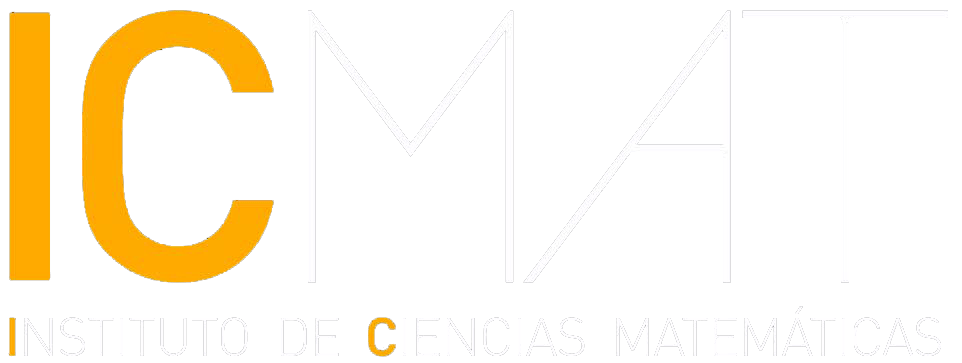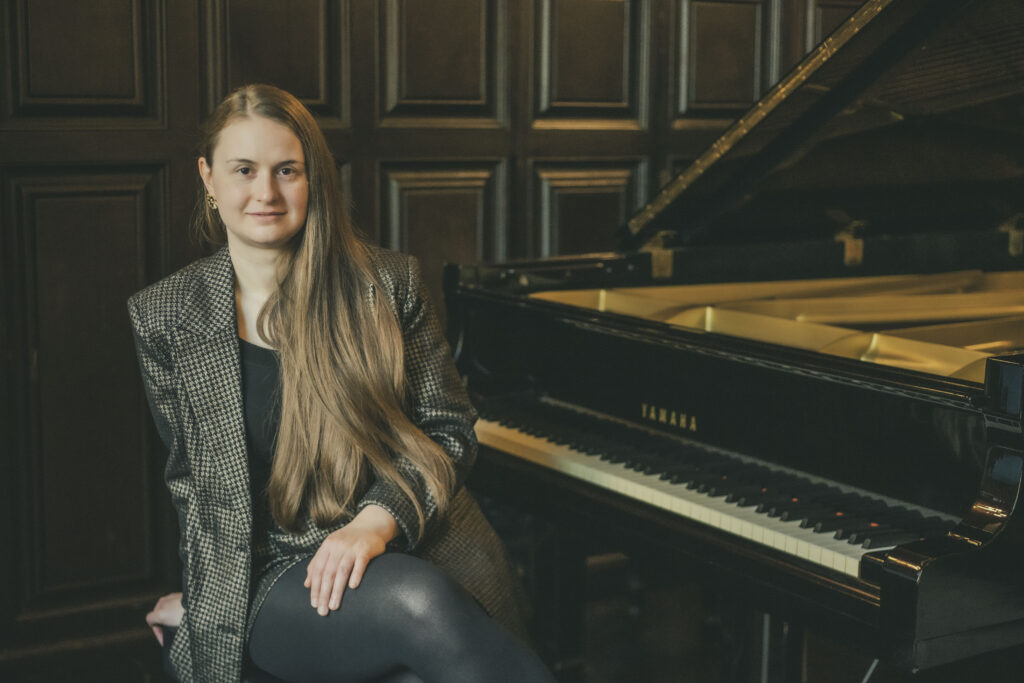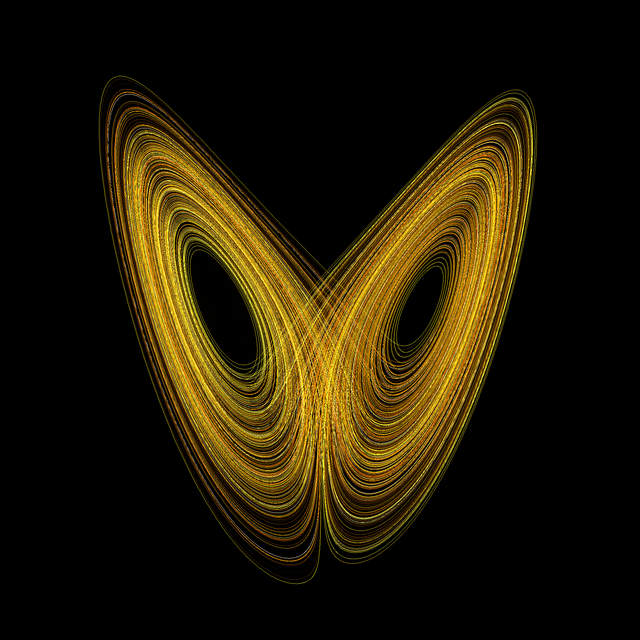Since its formalisation in the mid-20th century, chaos theory has been a field of great interest in mathematics, physics and meteorology. But beyond that, its tools and concepts have become a widely used resource in the arts, film and literary narrative and music. On Monday 2 December, Laura Farré Rozada, mathematician, pianist, researcher and disseminator, will give live expression to this last relationship in the lecture-recital ‘Chaos: from theory to music’, which will take place in Madrid at 19:00.
‘Although chaos is generally understood as a set of random patterns that cannot be predicted, in reality, it allows us to model very complex phenomena that alter very drastically and rapidly with a small change in the initial conditions,’ explains Farré Rozada. This is the famous butterfly effect. But is it possible to listen to this concept, and will the result resemble someone pounding on a piano, or will some kind of harmony emerge within the complexity?
Accompanied by a piano, Farré Rozada will present some of the fundamental ideas for understanding chaos theory and will detail its many musical facets. The event will take place at the Residencia de Estudiantes, as part of the series Matemáticas en la Residencia, organised by ICMAT, with the collaboration of the Deputy Vice-Presidency for Scientific Culture of the Spanish National Research Council (CSIC) and the Residencia de Estudiantes. It will be available live on www.edaddeplata.org
‘The first attempts to introduce the concept of chaos in music appear as early as the baroque period. However, it was in the 20th century that it began to be used more explicitly in music,’ says Farré Rozada. Important composers such as John Cage, Steve Reich and György Ligeti have implemented the idea of chaos as a creative resource.
‘What attracts me most about chaos theory is the ambiguity of handling enormous complexity with the peace of mind that you can understand the inherent patterns that characterise it,’ she says. ‘As a pianist and concert pianist, I use this resource all the time with the repertoire I perform: they are incredibly virtuosic and difficult works for the piano that allow you to show the full range of the instrument’s possibilities, but at the same time totally controlled by technical mastery, both physical and mental,’ she adds.
For Farré, who holds a PhD in music analysis, learning and memorisation from the Royal Birmingham Conservatoire, ‘exemplifying mathematical concepts with music is perhaps one of the most attractive ways to motivate people who are not comfortable with the exact sciences. Music can help us understand abstract concepts that are otherwise much more difficult or unattainable’.
According to her, the key is to show that mathematics ‘can and should be enjoyed, and that far from being a science only attainable by a few brilliant minds, you can always find a new way to make it more accessible. Anyone can understand any mathematical concept, however difficult it may be, if it is explained to them in the right way, or using the resources they need’, she concludes.
About the speaker
Laura Farré Rozada is a mathematician, pianist, researcher and disseminator. In her doctoral thesis, developed at the Royal Birmingham Conservatoire and published in 2024, she formalises a method for musical analysis, learning and memorisation based on mathematics and computer engineering. Considered a ‘rising star’ by BBC Music Magazine, among other awards she has received the BIME Equity New Talent Award (2022) and the American Classical Young Musician Award (2022). She is currently artist and lecturer in residence at CosmoCaixa (Barcelona) and CaixaForum (Seville, Zaragoza, Valencia, Madrid). She has released two albums: Nimbus (2021) and The French Reverie (2018), recognised by several awards and by specialised critics. As a soloist, she has performed in Spain, France, Belgium, Germany, Bulgaria, Serbia, United Kingdom, Canada, USA, Argentina and Singapore.
Her research focuses on the relationship between music and mathematics, musical memory, performance psychology and post-tonal repertoire.
Farré Rozada also works in the media. She is currently director, presenter and scriptwriter of the radio programme La cinta de Möbius (Catalunya Radio) and, until 2023, she was in charge of Musimáticas (Radio Nacional Clásica). She also collaborates in various programmes. She has also given numerous lectures on music and mathematics.
Mathematics at the Residence
Mathematics at the Residence is a series of lectures on the popularisation of mathematics organised by the ICMAT in collaboration with the Deputy Vice-Presidency for Scientific Culture of the Spanish National Research Council (CSIC) and the Residencia de Estudiantes.
Since the programme was set up in 2009, it has featured important international mathematics popularisers such as Marcus du Sautoy, Jesús María Sanz-Serna, Pierre Cartier, Guillermo Martínez, Edward Frenkel, Christiane Rousseau, Antonio Durán, John Allen Paulos, Martin Grötschel, Marta Macho-Stadler, Jin Akiyama, Aubin Arroyo, Eduardo Sáenz de Cabezón, Chris Budd and Sylvia Nasar.
—
This content has been automatically translated. The original text may differ slightly


